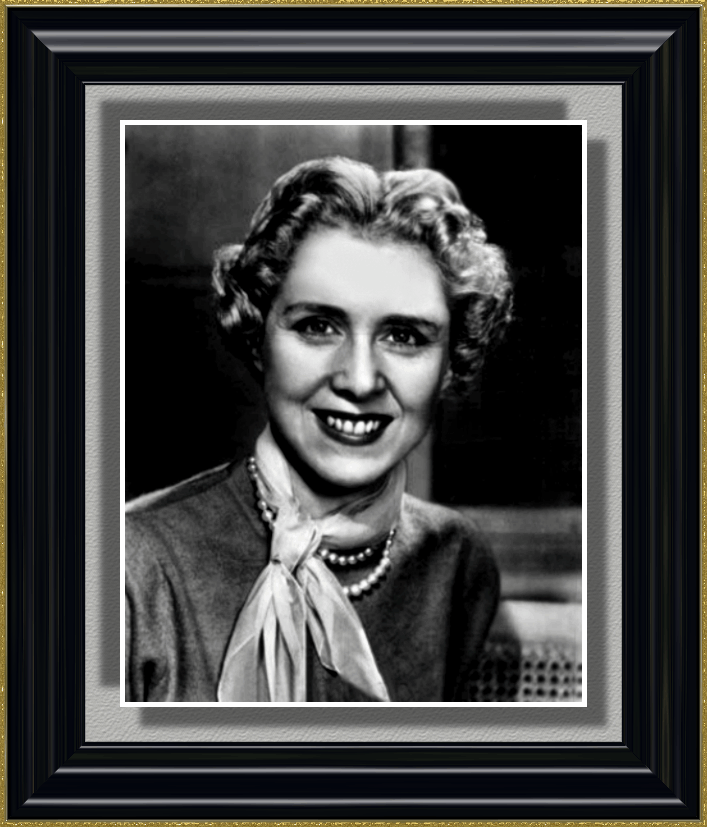
THE GOLDSTEIN LETTERS The Warrant for the Children of Israel Becoming Adopted Children of Christ in His Church  ARTICLE 41: CLARE BOOTH LUCE No convert from the isms to right reasoning, that leads to Truth Personified in Christ and His Church, has so deeply impressed this columnist of late years than Clare Booth Luce. Her three articles in McCall's are intellectually stimulating. Her evaluation of Freudism, to mention but one of the many isms dealt with, ought to help counteract the Freudizing of seekers after soul adjustments, who have been misled through specious arguments, such as appear in "The Peace of Mind," that are as unscientific as they are anti-Christian. The articles show that those persons who do "not get their ideas of God from God, that is, by revelation and grace," are likely to adopt an "atomic religion," the Credo of which is: "I believe in the atom, Power Almighty, Substance of Heaven and Earth, once and forever divisible, first split at Oak Ridge, as prophesied by St. Einstein, then dropped over Hiroshima in the form of a bomb, killing millions, still to be split over the whole world, whence it may bring the atomic Kingdom of Heaven on Earth or come to judge mankind obsolete. I believe in Uranium, Plutonium and Cylatron; the Communion of Scientists; the corruption of the body; the relativity of all mind and matter, world with an end, Amen." "Yes," says Mrs. Luce, "it may come; the last modern ism, Atomanimism." The Clare Booth Luce articles in McCall's stirred up a hornets' nest. The editor was flooded with letters of condemnation, as praise of the Catholic Church is foreign to this magazine. A minister, after protesting, said that "one must concede that the Catholic Church has a very thorough method of teaching," of which Catholics may well be proud, as "order is Heaven's first law." "We Protestants," said he, "have only liberty to offer in contrast." Yes, that's all! But it is of such a nature that it caused Protestantism to become theologically confusion-confounded in principle and moral standards. The "liberty" of Protestantism is based upon individual instead of Divine, authoritative judgment, which, if applied to our country, would most likely have split her into as many political divisions as there are Protestant sects, instead of remaining the United States. It is the "thorough Method of teaching" in the Catholic Church, based upon principles that are as unchangeable as is its Founder, Christ the Lord, that has attracted to her, converts from every department of intellectual activity. Catholics may thank God that this Church is not like "Lucy's Church," read about recently, that was "terribly liberal." "Ma says Lucy's Church has improved the road to Heaven until it is as broad and pleasant as the other road." MR. LUCE: PROTESTANT NEED OF THEOLOGY Is Henry Robinson Luce going the Clare Booth Luce way? The answer will be in the affirmative, if his realization of what is lacking in Protestantism is prayerfully followed by a search into the theology his learned wife probed to her intellectual and spiritual satisfaction. This query is prompted by the address Mr. Luce delivered to the members of the Chicago Federation of Protestant Churches. It was in answer to the question, "What ought a Christian mean by 'the Church'?" that assumed the conglomeration of Protestant churches may rightly be called "The Church." To quote, in part: "What it needs is more theology. That's what the people want. They are sincerely inquiring whether any knowledge of God exists or can exist ... "First Protestantism requires a stronger and better theology ... The fashionable Protestantism of the last decades was non-creedal, non-theological, non-ecclesiastical Protestantism. It found many passages in the Scriptures to support its intellectually fuzzy, morally weak, good-willism. It relied heavily, for example, on the 13th chapter of the First Corinthians. If Protestants know anything, they know the 13th chapter---'But now abideth faith, hope, love, these three: and the greatest of these is love'. But your attention ought also to be directed to the 14th chapter of the First Corinthians, that follows right after the glorious hymn to Divine love. In it St. Paul is terribly concerned about the order of the Church---not so much ecclesiastical order as intellectual order. And in that chapter he makes a striking announcement about God: 'God is not the author of confusion.' " If, by the grace of God, Mr. Luce receives the gift of faith, as we hope he will, it will mean the realization that in the Church of Mrs. Luce's adoption abides what is lacking in Protestantism that causes its "confusion," Divine authority, manifesting itself in an organic spiritual society of Christ's making, in which religious and moral order, based on theological exactness, exists.  Contact Us Contact Us HOME------------TRADITION www.catholictradition.org/Tradition/goldstein41.htm |